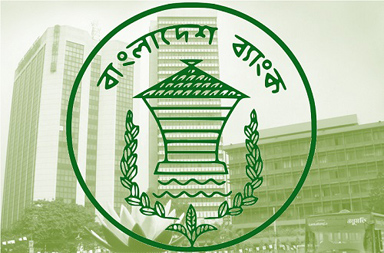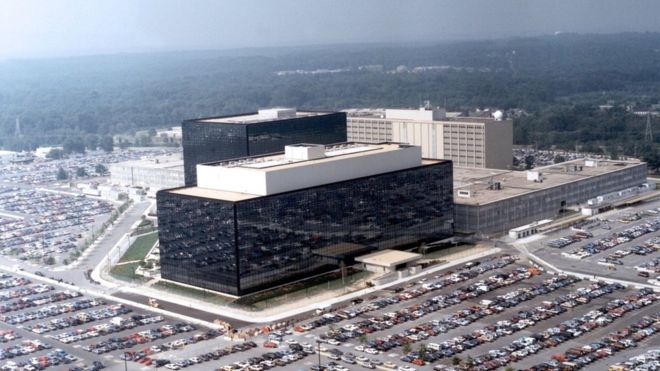Banking
NRBs can deposit foreign currency at airport banks
Non-Resident Bangladeshis (NRBs) are now allowed to deposit foreign currency in their accounts at bank booths in airports across the country.
The central bank issued a circular in this connection on Thursday, and asked the country's all authorised dealers (AD) in foreign exchange banks to follow the latest instructions immediately.
"To bring ease in deposit process, it has been decided that bank booths operating in airports under license from Bangladesh Bank (BB) may take deposits from NRBs in foreign currency, brought in by them for crediting their foreign currency accounts or Non-resident Taka accounts (by converting foreign currency at prevailing exchange rate) maintained with AD bank branches concerned," the central bank said in the circular.
"We've relaxed our regulations to facilitate inflow of cash foreign currency, particularly the US dollar, in the banking channel," a BB senior official explained.
He also said it will help increase the flow of inward remittance in the official channel.
"The deposited foreign currency will be treated as inward remittance," he added.
Talking to the FE, another BB official said the central bank has relaxed the regulations on the basis of consultations with the banks concerned.
Besides, the NRBs may deposit foreign currency brought in by themselves in their foreign currency accounts, subject to declaration on FMJ Form in case of the amount exceeding US$ 5,000 or equivalent, according to the central banker.
He also said the bank booths will have to convert the currency into relevant foreign currency at appropriate cross currency exchange rate to take the deposit.
"It will also help minimise risk in carrying cash foreign currency by the NRBs," the central banker noted.
The BB's latest move came against the backdrop of a falling trend in inward remittance flow in the recent months due to sluggish economic activities in the Middle-East countries coupled with a rising trend in sending money by the expatriate Bangladeshis through informal channels.
The overall remittance inflow has dropped by nearly 17 per cent or US$ 1.86 billion in the first nine months of this fiscal year (FY), 2016-17, against the same period of the previous fiscal.
The remittance receipts came down to $9.19 billion during the July-March period of this FY, from $11.06 billion in the same period of the previous fiscal, the latest BB data showed.
The inflow was estimated at $1.08 billion in March 2017, up by $136.69 million from that of the previous month. In February 2017, the amount stood at $940.75 million. It was $1.28 billion in March 2016.
"We're taking necessary measures to comply with the BB's instructions," an executive of a state-owned commercial bank told the FE.
BB eases process of depositing foreign currency by NRBs

Non-Resident Bangladeshis (NRBs) can now deposit foreign currencies brought in by themselves in their respective foreign currency accounts, subject to the declaration on Form of Money and Jewelry (FMJ) in case of the amount exceeding USD 5,000 or equivalent, reports BSS.
"Bangladesh Bank (BB) has decided that bank booths operating in airports under licenses with limited scope from BB may take deposits from NRBs in foreign currency brought in by them for crediting their foreign currency accounts or ‘Nonresident Taka’ accounts (by converting foreign currency at prevailing exchange rates)," according to a circular issued by BB yesterday.
To bring ease in the deposit process, the bank booths will be maintained with concerned Authorised Dealer (AD) bank branches, the circular added.
If the foreign currency brought in by NRBs differs from account type of the account holders, bank booths shall convert the currency into relevant foreign currency at appropriate cross currency exchange rate to affect the deposit, according to the circular.
US government 'hacked global bank system'

A huge range of security exploits, said to be worth over $2m if sold on the black market, have been leaked online.
The tools are said to have been created by the US National Security Agency (NSA), and accompanying documents appear to indicate a possible breach of the Swift global banking system.
Such a hack could have enabled the US to covertly monitor financial transactions, researchers said.
The files were released by Shadow Brokers, a hacking group that has previously leaked malware.
If genuine, it represents perhaps the most significant exposure of NSA files since the Edward Snowden leaks in 2013.
On Twitter, Mr Snowden described it as the "Mother Of All Exploits" - a reference to a bomb recently used by the US military in Afghanistan
Multiple experts have said this latest "data dump" is credible - though the institutions implicated have dismissed the claims, or refused to comment.
Swift, which is headquartered in Belgium, said: "We have no evidence to suggest that there has ever been any unauthorised access to our network or messaging services.
The BBC is not able to verify the authenticity of the files - and the NSA has not commented on the leak.
Swift was successfully targeted by hackers last year when criminals stole $81m from the Bangladeshi central bank.
Watching the Middle East
Swift is a network that allows global banks to move money around the world.
In the Swift network, smaller banks often make use of service bureaus to handle transactions on their behalf. Documents included in the leak suggest at least one major bureau, EastNets, may have been compromised.
"If you hack the service bureau, it means that you also have access to all of their clients, all of the banks," said Matt Suiche, founder of the United Arab Emirates-based cybersecurity firm Comae Technologies, speaking to Reuters.
Headquartered in Dubai, EastNets has clients in Kuwait, Dubai, Bahrain, Jordan, Yemen and Qatar.
Spreadsheets published by Shadow Brokers appeared to list banks that had been breached with "implants" - secret data-gathering software
Cris Thomas, a security researcher with Tenable, said analysis of the leaked files suggested the US government had the capability "to monitor, if not disrupt, financial transactions to terrorists groups".
In a statement on Friday, EastNets strongly denied the claims.
"The reports of an alleged hacker-compromised EastNets Service Bureau network is totally false and unfounded," a spokesperson said.
"The EastNets Network Internal Security Unit has run a complete check of its servers and found no hacker compromise or any vulnerabilities.
"The photos shown on Twitter, claiming compromised information, is about pages that are outdated and obsolete, generated on a low-level internal server that is retired since 2013."
Windows threa
The files contained several "zero day" exploits - vulnerabilities that were previously unknown to the companies that create the software, or the security community at large
The zero-days targeted Windows machines, though researchers said none in the cache would be effective against the latest version, Windows 10.
That said, multiple experts said the sheer number of zero days released at the same time was unprecedented. One researcher, speaking to Vice, said the exploits would have been worth more than $2m if sold privately.
In January, a Twitter account believed to be run by the group announced an auction of the exploits, but it appears the group did not find any buyers. The NSA is now facing criticism for not sharing details of the exploits with Microsoft once it became clear the tools were in the hands of a hacking group
Microsoft said in a statement to the BBC that it was "reviewing the report and will take the necessary actions to protect our customers"
Source: BBC
news:daily sun/15-apr-2017Banks' growing NPLs, excess liquidity fuel concerns
The rising non-performing loans (NPLs) and excess liquidity have become major areas of concern for the country's banking sector.
Besides, the number of large loans is also on the rise while the amount of credit received by small and medium enterprises has declined.
The revelations were made on Tuesday by speakers at a workshop on 'review of credit activities in 2016'. The workshop was organised by the Bangladesh Institute of Bank Management (BIBM) at its auditorium in the city.
Deputy Governor of Bangladesh Bank (BB) Abu Hena Mohd. Razee Hasan was present on the occasion as the chief guest.
BIBM Director Dr. Prashanta Kumar Banerjee presented the keynote paper at the workshop with BIBM Director General Dr. Toufic Ahmad Choudhury in the chair.
The workshop was told the NPLs in the banking system stood at 10.10 per cent of the aggregate amount of loans until June 2016 compared to 8.8 per cent as of June 2015.
Terming the pace at both NPLs and excess liquidity were growing a cause of concern for the banking sector, Mr. Razee said the central bank already took some steps to minimise the risks of banks.
Speaking on the occasion, BIBM supernumerary and former managing director of Pubali Bank Helal Ahmed Chowdhury said since recovery of default loans is a time-consuming process, the option of alternative dispute resolution (ADR) can help address the problem.
He also suggested establishment of a data bank like CIB (credit information bureau) of Bangladesh Bank for getting information on properties to be mortgaged for sanctioning bank loans.
In his speech, another BIBM supernumerary, Md. Yasin Ali, said that the NPLs in the state-owned banks accounts for about 40 per cent of the total while it is only 1.0 per cent in foreign banks operating in Bangladesh, a big difference.
In his keynote paper, Dr. Prashanta suggested enhancement of credit flow to rural areas side by side with the urban areas.
BB allows foreign cos to issue Taka bond

Foreign companies operating in Bangladesh have been allowed to issue Taka bonds for mobilising funds from the local sources as the central bank relaxed further the foreign-exchange transactions regulations.
This is, however, subject to prior permission of Bangladesh Securities and Exchange Commission (BSEC).
Bangladesh Bank (BB) relaxed the guidelines to encourage inflow of foreign direct investment (FDI) into the country, according to a notification BB issued Wednesday.
The foreign companies have been permitted to take long-term loans from the local banks and non-banking financial institutions (NBFIs) to meet their business requirements.
On the other hand, individuals and local companies were eligible to invest in the foreign companies through purchasing their Bangladesh Taka (BDT) bonds.
"General approval is hereby accorded for purchase by individuals and institutions resident in Bangladesh of Taka bonds issued with permission of the BSEC by foreign owned/controlled companies in Bangladesh," reads the notification.
Earlier no person resident in Bangladesh could lend any money or security to any foreign owned/controlled company other than banking company except with the general or specific approval of the central bank.
"We've taken a series of measures to facilitate foreign controlled companies for attracting the FDI into Bangladesh," a BB senior official told the FE.
He said both the individuals and local companies have already been allowed to invest in the commercial papers (CPs), issued by the foreign companies, to widen the scope of Taka working capital loans for the overseas business entities.
Earlier on March 23, the central bank had issued a circular in this regard.
The banks have been permitted to invest in the CPs, provide credit enhancements to CP issuers and act as an issuing and paying agents (IPA) of CPs in the existing guidelines.
The IPA means a bank that delivers CPs to the investors against the proof of payment and at maturity repays the investors after receiving funds from the issuer.
Talking to the FE, another BB official said that two new windows have been opened for the foreign companies through relaxations of the regulations to receive loans from local sources.
"It will also help reduce the excess liquidity with the country's banking system," the central banker said, adding that both the individuals and local companies would be benefited through investing their money in the bonds.
On the other hand, foreign investors have been allowed to invest their funds in local companies through purchasing shares directly with local currency. Such relaxation would help the foreign investors avoiding exchange rate fluctuation risk during the investment period, a BB official told the FE earlier.
The gross inflows of FDI increased by 16.91 per cent to $ 2.08 billion during the July-February period of the current fiscal year (FY 2016-17) from $ 1.78 billion in the same period of the FY 2015-16 while net FDI inflow rose by 17.35 per cent to $1.17 billion from $997 million.
Earlier, policy researchers and business leaders had recommended the government for taking effective measures to woo the FDI on a larger scale, even if it comes from tax-haven countries or territories.



